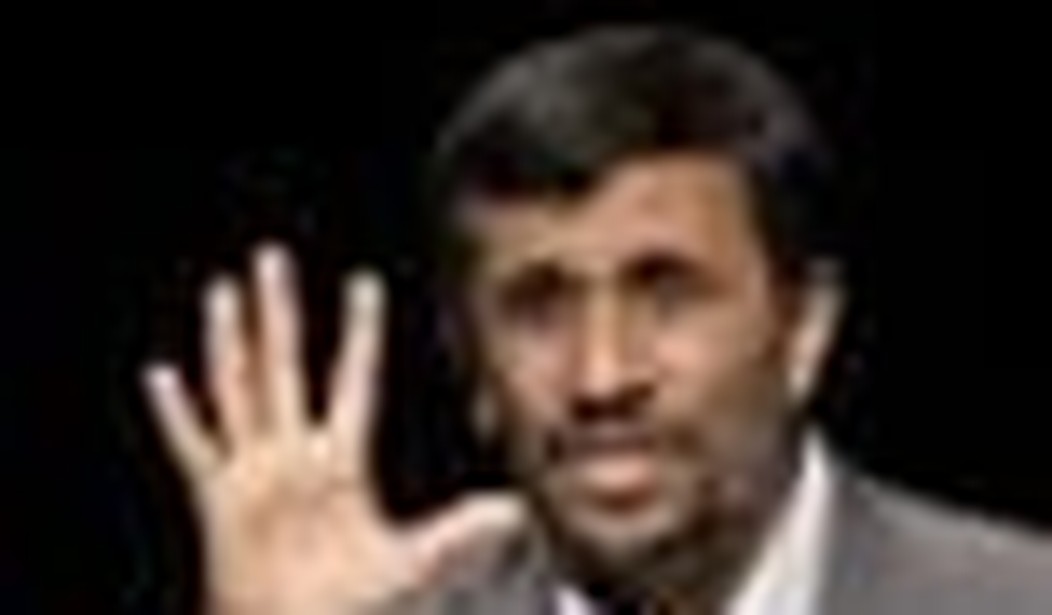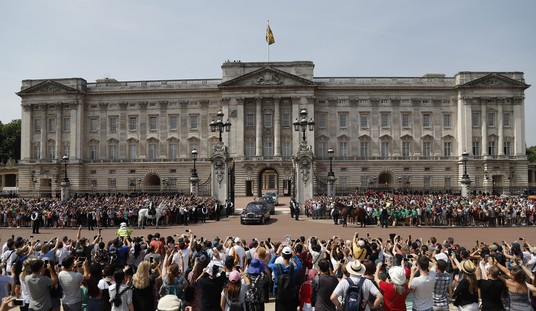The release of confidential diplomatic cables by WikiLeaks (and the pending release of thousands more) has undoubtedly done damage to our ability to win the trust of informants, foreign officials, and intelligence services. There is ample reason to be angry over this scandal, but there is also reason to be encouraged. The content of the documents shows the roof is collapsing on the Iranian and North Korean regimes and that a coalition has formed to support regime change for both.
The begging among the Arabs for a military strike against Iran’s nuclear program has been widely covered, but their appetite to go even further and support regime change has not been. The documents reveal that King Abdullah of Saudi Arabia has told the U.S. to “cut off the head of the snake,” a statement more indicative of regime change than a limited military strike. The prime minister of Lebanon, Saad Hariri, is recorded as saying in August 2006: “Iraq was unnecessary. Iran is necessary.” Hariri said this even though he has been forced into publicly kissing the feet of Hezbollah, Syria, and Iran.
The cables also show optimism about the prospects for a policy of regime change. The chief of Kuwait’s military intelligence comments on the instability in Iran, and says that an event like the arrest of opposition leader Mir-Hossein Mousavi could spark an uprising that ends the regime. President Aliyev of Azerbaijan is documented as having “viewed the situation as very tense within Iran and believed it could erupt at any time.”
The U.S. is also pressured by Meir Dagan, the director of Israel’s legendary Mossad intelligence service, to make moves to support regime change by supporting minorities like the Azeris, Baluchis, and Kurds, as well as the student democracy movement. Dagan is recorded as being “sure” that the regime could be toppled with U.S. support. That comes from a cable in August 2007, well before the uprising in the summer of 2009 following Ahmadinejad’s so-called “re-election.” Dagan’s confidence in fomenting regime change has surely been strengthened since then.
A cable from June 2009 reports that several Iranian contacts say that there is a “surge in Baluchi violence in the border area” so severe that the government may be losing control of the region. Violent clashes by Baluchis and other minorities have grown markedly since then. The Obama administration has put distance between the U.S. and the Baluchi militants, condemning their attacks and listing the Jundullah as a Foreign Terrorist Organization, as was previously done to the Free Life Party of Kurdistan.
Another document shows that a rare opportunity to undermine the regime will come soon. A source was told by former President Rafsanjani in 2009 that Ayatollah Khamenei was in the last stages of his life and could die from cancer within months. Once the supreme leader dies, the regime will face its biggest fracture since 1979 as the battle over his successor ensues.
Altogether, the cables give good reason to believe that Israel, Saudi Arabia, Egypt, Bahrain, Jordan, the United Arab Emirates, Kuwait, Azerbaijan, and Lebanon would all support military action and even a strategy of regime change towards Iran. Yemen, Oman, Algeria, Morocco, and other countries can also be expected to quietly back it. Unlike the toppling of Saddam Hussein, an effort to support the democratic opposition in Iran would actually bring together an impressive international alliance with a strong Muslim component.
Europe can also be counted on to support such a strategy. A cable from September 2009 records a French diplomat as saying: “The current Iranian regime is effectively a fascist state and the time has come to decide on next steps.” European leaders have been courageous in vocally supporting the Iranian people and lambasting the nature and legitimacy of the regime. For example, on November 25 the European Union passed a resolution calling on the U.S. to remove the Mujahideen-e-Khalq from the list of Foreign Terrorist Organizations.
The cables also report on the Iranians’ failures in Iraq. The regime undoubtedly still commands influence, but a December 14, 2009, cable reports how the religious Iraqi city of Najaf is increasingly agitated by Iranian influence. Grand Ayatollah al-Sistani’s staunch opposition to the Iranian regime’s theology is exemplified in a report saying that he has banned Iranians altogether from joining Najaf’s seminaries to prevent Revolutionary Guard agents from coming in.
The WikiLeaks disclosures also paint a disturbing picture for the North Korean regime. The cables show that South Korean Vice Foreign Minister Chun Yung-woo was told by two senior Chinese officials that the leadership of their country was increasingly supportive of a united Korea with Seoul as the capital. He was told by the Chinese in April 2009 that Kim Jong-Il was acting like a “spoiled child.”
Chun, who is now the national security advisor to the South Korean president, says that Chinese officials understand that immense business opportunities come with a united Korea. He also predicts that the North Korean regime will collapse two to three years after Kim Jong-Il dies and the Chinese military will not intervene to save it. This may sound like wishful thinking, but after the story broke, Chinese officials in Europe anonymously said that their country supported a united Korea “in the long term.”
A February 22, 2010, cable gives credence to Chun’s analysis, reporting that the regime’s attempt to replace the currency (which it had to backtrack on because of unprecedented public outrage) had caused “strong resentment throughout DPRK society” and that there were “credible reports of unrest in the North.”
The WikiLeaks document dump, though its negative affects overshadow anything positive, shows that the West does not have to accept the Iranian and North Korean regimes. If they survive over the long-term, it will be because the U.S. allowed it.









Join the conversation as a VIP Member